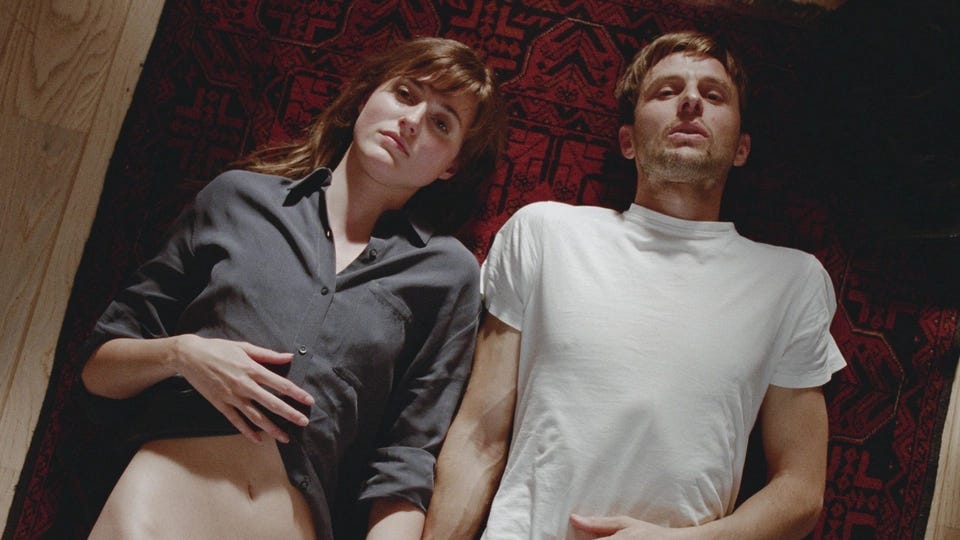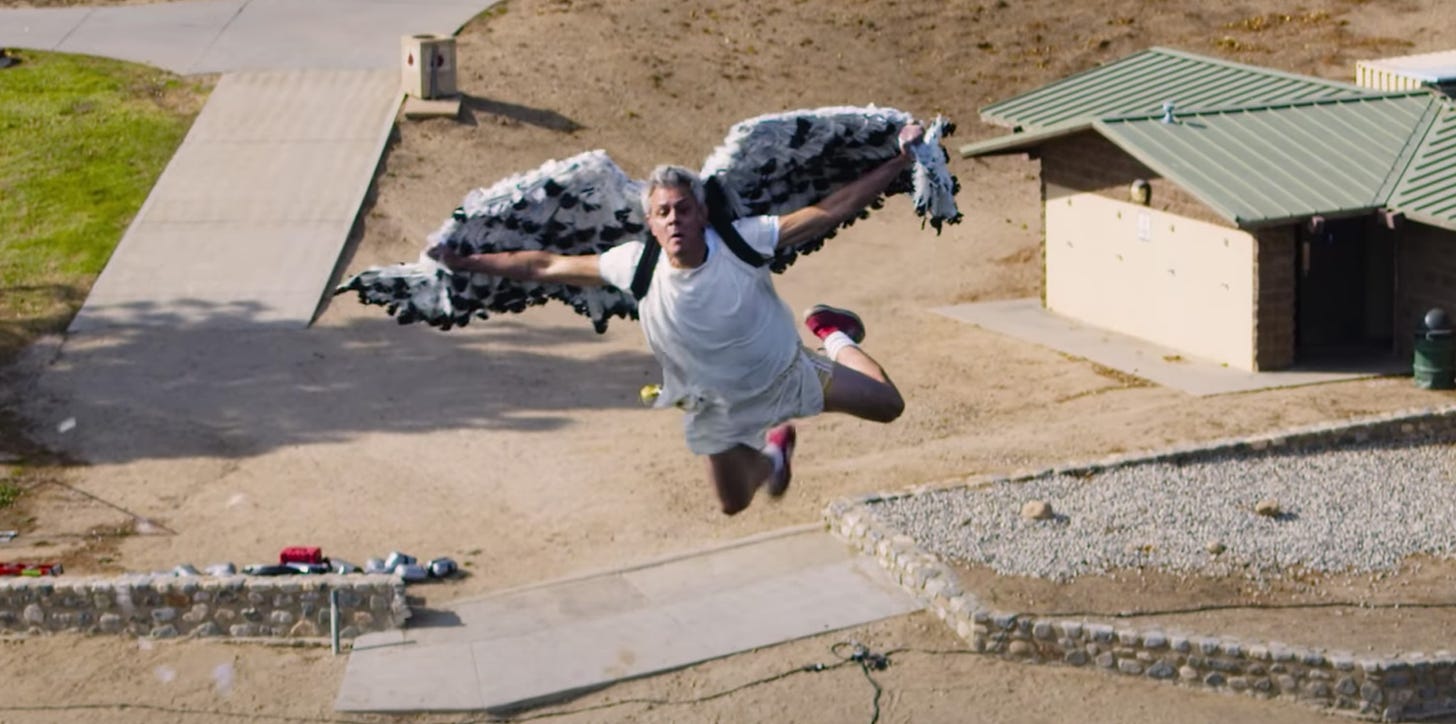In Review: 'The Worst Person in the World,' 'Jackass Forever'
Norwegian director Joachim Trier ends his Oslo Trilogy with an incisive tale of generational drift, and the Jackass boys (with some new additions) are back in town.
The Worst Person in the World
Dir. Joachim Trier
121 min.
Movies don’t easily accommodate characters who don’t know what they’re doing—or, at least, movies demand that uncertainty not be a prevailing trait. Society doesn’t tolerate such characters, either, which explains the title of Norwegian director Joachim Trier’s prismatic new film, The Worst Person in the World. Though of a piece with Trier’s loosely associated “Oslo Trilogy”—Reprise and Oslo, August 31st are the others, all three starring the superb Anders Danielsen Lie—the film plays like a savvy deconstruction of Annie Hall or similarly literate romantic comedies. A certain amount of fumbling around comes with the territory, as the intellectually curious and emotionally promiscuous find their way. But Trier wonders, “What if they never do?” Or, “What if their way is a direction no one could have anticipated?” How would we feel about them then?
Presented in 12 chapters, with a prologue and epilogue, The Worst Person in the World may mimic the structure of a novel, but the device actually allows for an extraordinary freedom of moment. Each chapter can be a new and exciting piece of its heroine’s life. And a voiceover narrator adds bits of description that fill in details that the action and dialogue cannot—often with a droll, ironic wit that’s a pleasure in itself. In the prologue, for example, the narration hurries along a breathless sequence in which Julie (Renate Reinsve), a medical student in Oslo, decides to drop out for a career in psychology, which she drops for a brief sojourn in photography, which she drops for a semi-permanent gig as a bookstore clerk. She’s a brilliant young woman, capable of mastering all those trades (and, later, the art of the short story), but nothing feels right. Life for Julie is a dressing room full of ill-fitting clothes.
After shedding her latest boyfriend, Julie does find an appealing (and perhaps long-term) substitute in Aksel (Lie), an artist whose underground comic Bobcat resembles the work of R. Crumb, even though Aksel is considerably more put-together socially. Aksel is over a decade Julie’s senior, and the age gap becomes a significant obstacle in their relationship and a significant theme in the film, which tries to pinpoint generational differences without drawing any sweeping conclusions about them. Though Aksel floats the idea of having children, given that he’s easing into his 40s, he’s also accommodating of Julie’s ambivalence on this and many other subjects. He also encourages her whims, like writing an explicit piece on oral sex that takes the internet by mild storm. But her attention inevitably wanders when she impulsively crashes a wedding and flirts with Elvind (Herbert Nordrum), who also happens to be in a relationship.
The Elvind meeting, detailed in “Chapter 2: Cheating,” is The Worst Person in the World at its most bewitching, an episode that feels fittingly discrete from all the others, since Julie is entering a party where she’s not invited and reinventing herself on the fly. She and Elvind are determined, however, not to cheat on their significant others, so the evening turns into a funny, sexy tease where they’re tiptoeing up to the line without crossing it. They will fully cross it later, but this one chapter is the film in elegant miniature, an example of Julie’s restlessness, perhaps, but also her courage in following her instincts. Aksel, for one, seems to admire that spontaneity, even if it inevitably wounds him, too.
There are times when The Worst Person in the World feels like an old Woody Allen film; when Trier places a jazz rendition of “The Way You Look Tonight” over a scene of Julie moving into Aksel’s apartment, it’s like déjà vu. But even at the peak of his powers, Allen tended to imagine younger adult women as precocious at best, dilettantes at worst, often temporary conquests for older men who are stepping away from more mature, committed relationships. Trier knows that Julie is lightning in a bottle, but the previous films in the Oslo Trilogy, about men of a younger age, were similarly sensitive to the instability of a time when adults are still figuring things out.
Reinsve and Lie have wonderful chemistry of a highly specific kind, where they’re persuasive as a couple without the pieces fitting exactly right. Reinsve measures up to the difficult task of unifying the many phases of Julie into a cohesive portrait, and Lie is equally good at channeling Gen-X world-weariness while Aksel quietly reinvents himself through this relationship, too. The chapters in The Worst Person in the World make it a bit lumpy at times, especially as some episodes seem disposable, like the bad mushroom trip that doubles as a journey into Julie’s psyche. The ending, too, is disappointingly tidy, with a deus ex machina twist that throws the epilogue out of whack. But there’s no easy way to put a bow on Julie’s story. It would defy her nature. — Scott Tobias
The Worst Person in the World opens in limited release on Friday.
Jackass Forever
Dir. Jeff Tremaine
96 min.
You will believe a penis can play paddleball. And terrorize a city. And serve as a punching bag. (Well, it’s actually a single testicle, drooping vulnerably from the ceiling of a detailed miniature boxing gym that serves as the punching bag, but it’s in the same general biological vicinity.) Jackass Forever is the fourth feature film spinning off from the early ’00s MTV series in which a band of stunt professionals, skateboarders, and other assorted hardy and/or stupid types found colorful ways to push the human body to its extremes (with the occasional break to prank unsuspecting civilians). In the subsequent two decades — including the 12 years since the last Jackass film — much and nothing has changed. Johnny Knoxville, Steve-O, Jason “Wee Man” Acuña and other familiar faces remain at the center of the action but freely acknowledge they’re not as young as they used to be.
No one’s aging out. If anyone can claim to suffer the most here it's 45-year-old Danger Ehren, though one scene has the now-silver-maned Knoxville reacquainting himself with the business end of a bull’s horns. But the passing of time might also help explain the expansion of the cast to include new members like Jasper Dolphin (previously best known as a member of Odd Future) and Rachel Wolfson. There have been subtractions, too. The loss of Ryan Dunn, who died in a car accident in 2011, is acknowledged in a dedication at the end, while the absence of Bam Margera, whose well-documented struggles with sobriety coincided with the production of the film, remains undiscussed.
The jackassery, however, remains much the same. The elaborate set pieces that begin and end the film sandwich bite-sized bits involving old-age make-up, dangerous coffee trucks, bodily fluids (some human, some not), and dangerous wildlife. As before this installment takes place in a playground of (mostly) pre-sexual innocence in which butts are for farting and genitals for smashing and otherwise mistreating. And, as before, it’s a fun place to visit thanks to the bonhomie surrounding the visibly painful antics. The abuse is democratic. Everyone gets their time to suffer, but the laughs and hugs that follow seem to wash away any bad feelings. Besides, someone has to push the boundaries of the human experience, and it’s good to know this gang is still out there doing the good work of licking tasers, serving as human ramps, and other vital functions. Hopefully they’ll keep at it, if not forever then at least as long as their butts can endure it. —Keith Phipps
Jackass Forever opens in theaters Friday.









> intellectually curious and emotionally promiscuous find their way. But Trier wonders, “What if they never do?”
Me love that idea. Me always enjoy endings where directionless character not get life together but can start to see ahead to time where they might — Frances Ha is favorite from recent years. But it rare to have movie that not give you any hint that someone will eventually straighten things out. Inside Llewyn Davis only example me can think of, so this movie in good company.
I will definitely make time for one of these movies. I’m sure my ex-brother-in-law will make time for the other.